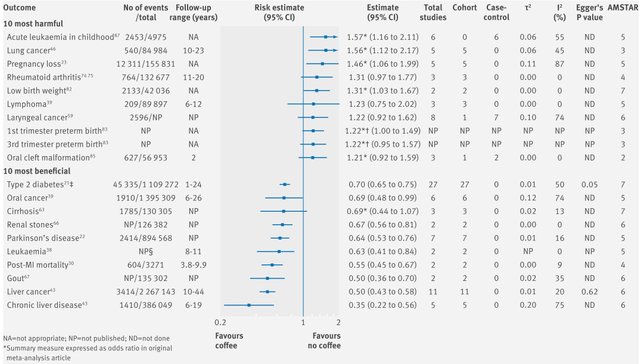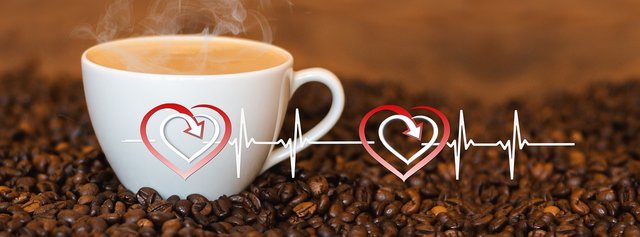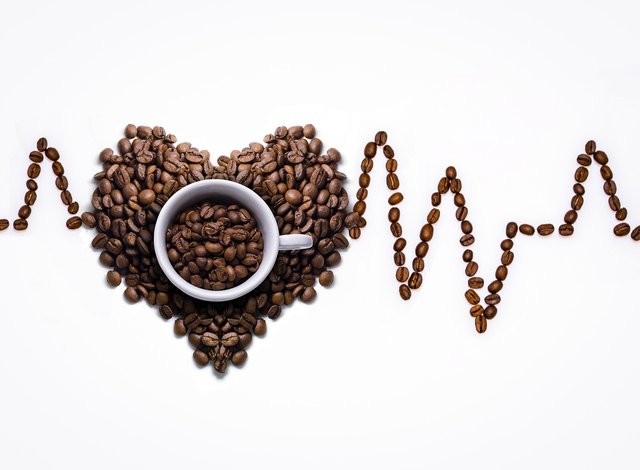Cafe y Salud: Mitos y realidades? / Coffee and Health: Myths and realities? (ESP/ENG)
INTRODUCCIÓN
El Café una de las bebidas más utilizada en el mundo entero, se prevé que el consumo mundial estaría alrededor de 153.3 millones de sacos anual y los países más consumidores de este producto son Unión Europea, Estados Unidos y Brasil concentrando en conjunto un total del 59%; Se ha demostrado que el café, ejerce una serie de efectos sobre la salud humana. La asociación entre el consumo de café y una variedad de condiciones y enfermedades se ha examinado ampliamente, a menudo con resultados contrastantes. Las principales preocupaciones de seguridad surgen en relación con su contenido de cafeína; La cafeína es el estimulante fisiológico más ampliamente consumido en todo el mundo, con efectos secundarios que pueden afectar los resultados cardiovasculares. El contenido de cafeína se ha considerado principalmente responsable de los efectos cardiovasculares debido a su capacidad para elevar la presión sanguínea como resultado de los aumentos en la resistencia periférica total. Sin embargo, la corta duración de los ensayos controlados aleatorios (ECA) ha enfatizado principalmente los efectos agudos del consumo de café y los estudios observacionales a menudo carecen de controles adecuados para los factores de confusión (es decir, tabaquismo) que pueden contribuir a los resultados negativos asociados con el consumo de café. . No obstante, las mejoras en las técnicas analíticas han descubierto numerosos compuestos potencialmente beneficiosos en el café, incluidos los polifenoles antioxidantes, que están muy concentrados en el café. Estos hallazgos han atraído a una creciente audiencia científica con el objetivo de encontrar posibles efectos beneficiosos del café. 1
INTRODUCTION
Coffee is one of the most widely used drinks in the world, it is expected that world consumption would be around 153.3 million bags annually and the countries that consume most of this product are the European Union, the United States and Brazil, together concentrating a total of 59 %; Coffee has been demonstrated to exert a number of effects on human health. The association between coffee consumption and a variety of conditions and diseases has been examined extensively, often with contrasting results. The main safety concerns arise in regard to its caffeine content; caffeine is the most widely consumed physiological stimulant worldwide,with side effects thatmay affect cardiovascular outcomes. The caffeine content has been considered mainly responsible for cardiovascular effects due to its ability to raise blood pressure as a result of increases in total peripheral resistance. However, the short duration of randomized controlled trials (RCTs) has emphasized mostly the acute effects of coffee consumption, and observational studies have often lacked adequate controls for confounding factors (i.e., smoking status) that may contribute to the negative outcomes associated with coffee consumption. Nonetheless, improvements in analytic techniques have uncovered numerous potentially beneficial compounds in coffee, including antioxidant polyphenols, which are highly concentrated in coffee 1
COFFEE COMPOSITION
Coffee has a very complex chemical composition, which includes caffeine, phenolic compounds, diterpenes, magnesium, trigonelline, quinides, and lignans, among many others. The relative proportions of these compounds vary with the type of coffee bean, degree of roasting, and method of filtration. It is known that caffeine intake stimulates the release of adrenaline, producing multiple effects on the cardiovascular system, such as increased blood pressure (BP) and heart rate, endothelial dysfunction, and reduced insulin sensitivity. These effects are consistent with the increased risk of suffering a coronary event or a stroke in the hours following coffee consumption 2
Antioxidant Properties of Coffee
Most of the potential beneficial effects of coffee rely on the assumption that coffee may have antioxidant and anti-inflammatory actions that, over the long term, may induce protection against subclinical inflammation and chronic diseases triggered by inflammation. Experimental models and studies on humans have demonstrated, albeit with some contrasting results, the attenuation ofinflammatory markers—such as interleukin 6, tumor necrosis factor-α, interferon-γ,and transforming growth factor-β—after administration of coffee. The main components of coffee described as exerting such effects are phenolic compounds, caffeine, diterpenes, trigonelline, and melanoidins. 1
EFFECT OF COFFEE CONSUMPTION

Ilustración 3: Poole, Kennedy et al.jpg3
High versus low coffee consumption and associations with multiple health outcomes. Estimates are relative risks and effect models are random unless noted otherwise. For type 2 diabetes, P value was significant for non-linearity. No of events/total for leukaemia could not be split from other outcomes. All estimates were from our own reanalysis apart from preterm birth in first and third trimester and leukaemia
Coffee and Cancer
Anumber of plausible mechanisms may explain the observed associations between coffee and cancer risk. Phytochemical compounds contained in coffee (diterpenes, melanoidins, and polyphenols) may exert beneficial effects, including inhibiting oxidative stress and oxidative damage irrespective of the site involved. These actions may have a role, particularly in the early process of the transformation of a normal cell into a malignant tumor. Coffee has been demonstrated to play a part in defense mechanisms, including regulating DNA repair, phase II enzymatic activity, and apoptosis, as well as having antiproliferative, antiangiogenic, and antimetastatic effects; the expression of antioxidant defense and detoxification genes depends on transcription factors that can be regulated by coffee, such as the complex of Nrf2 and Kelch-like ECH-associated protein 1, activator protein 1, or the aryl hydrocarbon receptor 1
Coffee and Mental Health
The potentially beneficial effects of coffee on Parkinson’s disease and, more generally, mental health may reflect the neuroprotective action of (a) caffeine acting as an adenosine receptor antagonist, which results in the release of mainly excitatory transmitters, including dopamine; (b) trigonelline, N-methylpyridinium, chlorogenic acid, catechol, pyrogallol, and 5- ydroxytryptamides, all of which have been demonstrated to increase calcium signaling and dopamine release; and (c) the local antioxidant effects of chlorogenic acids, which have been associated with neurogenesis (the process by which neurons are generated) 1
Effects of coffee consumption on cardiovascular diseases and hypertension
The findings from studies demonstrating an effect of coffee consumption with HTN, CVD, HF, and total mortality. Regarding BP control, three large reviews involving 1,502.218, 172,567, and 170,320 subjects showed a neutral effect with coffee consumption 3-6 cups/day. One of these reviews showed that acute caffeine administration led to a temporarily increase in BP in caffeine naïve hypertensive subjects, but not in chronic coffee drinkers, whereas another showed an adverse interaction with systolic BP (SBP) of high coffee intake with weight and age in male but not female subjects. 4
The effect of coffee consumption on cardiac arrhythmias
The old perception that coffee drinking is arrhythmogenic , has not been supported by recent studies, which have demonstrated either a neutral or a beneficial effect of coffee consumption in patients with preexisting CVD or cardiac arrhythmias. The data from the latter studies are listed in table 2 The acute effects with caffeine administration of 500 mg within 5 hours on the incidence of cardiac arrhythmias was investigated by Zuchinali et al, in 51 patients with chronic heart failure due to systolic dysfunction (EF 29%) in a randomized, placebo-controlled study. There was no difference between caffeine and placebo groups with respect to ventricular premature beats (VPBs), supraventricular beats (SVPBs), or couplets. In addition, exercise treadmill test) had no significant effect on the incidence of VPB< or SVPBs in both groups. 4
Coffee reduces the risk of death after acute myocardial infarction
A statistically significant inverse correlation was observed between coffee drinking and mortality; all three groups showed a significant reduction in risk ratio. Light coffee drinkers versus noncoffee drinkers were associated with a risk ratio of 0.79 [95% confidence interval (CI): 0.66–0.94, P=0.008]; heavy coffee drinkers versus noncoffee drinkers were associated with a risk ratio of 0.54 (95% CI: 0.45–0.65, P<0.00001); and heavy coffee drinkers versus light coffee drinkers were associated with a risk ratio of 0.69 (95% CI: 0.58–0.83, P<0.0001) 5
Conclusions
Data from the recent reviews and prospective cohort studies indicate that coffee drinking is fairly safe and does not increase the BP or the incidence of CVD, strokes, HF, all-cause mortality and cardiac arrhythmias. It appears that the safest coffee consumption is 3-4 cups/day, which represents the greatest majority of coffee drinkers, However, there are several older studies that have demonstrated an increase in BP, CVD, cardiovascular mortality and cardiac arrhythmias with coffee consumption. This difference could be attributed to methodological reasons or to different coffee consumed. Boiled bean coffee was the coffee consumed in the older days, and this type of contains high amounts of cafestol and kahweol, which increase serum cholesterol. In contrast the currently consumed filtered coffee contains significantly less amounts of these substances 4
Conclusiones
Los datos de las revisiones recientes y estudios de cohorte prospectivos indican que el consumo de café es bastante seguro y no aumenta la PA ni la incidencia de ECV, accidentes cerebrovasculares, insuficiencia cardíaca, mortalidad por todas las causas y arritmias cardíacas. Parece que el consumo de café más seguro es de 3-4 tazas / día, lo que representa la mayoría de los bebedores de café. Sin embargo, hay varios estudios anteriores que han demostrado un aumento en la PA, ECV, mortalidad cardiovascular y arritmias cardíacas con el consumo de café. Esta diferencia podría atribuirse a razones metodológicas o a diferentes cafés consumidos. El café en grano hervido era el café que se consumía en los viejos tiempos, y este tipo de café contiene altas cantidades de cafestol y kahweol, que aumentan el colesterol sérico. Por el contrario, el café filtrado actualmente consumido contiene cantidades significativamente menores de estas sustancias.
References
- Grosso G, Godos J, Galvano F, Giovannucci EL. Coffee, Caffeine, and Health Outcomes: An Umbrella Review. Annu. Rev. Nutr. 2017;37:131–56.
- Rodríguez-Artalejo F, López-García E. Coffee Consumption and Cardiovascular Disease: A Condensed Review of Epidemiological Evidence and Mechanisms. J. Agric. Food Chem. 2018;66:5257–63.
- Poole R, Kennedy OJ, Roderick P, Fallowfield JA, Hayes PC, Parkes J. Coffee consumption and health: umbrella review of meta-analyses of multiple health outcomes. BMJ 2017:j5024.
- Chrysant SG. The impact of coffee consumption on blood pressure, cardiovascular disease and diabetes mellitus. Expert Review of Cardiovascular Therapy 2017;15:151–6.
- Brown OI, Allgar V, Wong KY-K. Coffee reduces the risk of death after acute myocardial infarction. Coronary Artery Disease 2016;27:566–72.






Congratulations! This post has been upvoted from the communal account, @minnowsupport, by alfonzoasdrubal from the Minnow Support Project. It's a witness project run by aggroed, ausbitbank, teamsteem, theprophet0, someguy123, neoxian, followbtcnews, and netuoso. The goal is to help Steemit grow by supporting Minnows. Please find us at the Peace, Abundance, and Liberty Network (PALnet) Discord Channel. It's a completely public and open space to all members of the Steemit community who voluntarily choose to be there.
If you would like to delegate to the Minnow Support Project you can do so by clicking on the following links: 50SP, 100SP, 250SP, 500SP, 1000SP, 5000SP.
Be sure to leave at least 50SP undelegated on your account.
This post has received a 2.78 % upvote from @booster thanks to: @alfonzoasdrubal.
Congratulations @alfonzoasdrubal! You have completed some achievement on Steemit and have been rewarded with new badge(s) :
Click on the badge to view your Board of Honor.
If you no longer want to receive notifications, reply to this comment with the word
STOPTo support your work, I also upvoted your post!
Do not miss the last post from @steemitboard!
Participate in the SteemitBoard World Cup Contest!
Collect World Cup badges and win free SBD
Support the Gold Sponsors of the contest: @good-karma and @lukestokes
Buenas tardes, muy interesante toda la información publicada, siendo que existe una gran población de consumidores de Cafe, que es una bebida que nos acompa#a culturalmente pero, que la mayoría no somos conscientes de los riesgos para la salud.